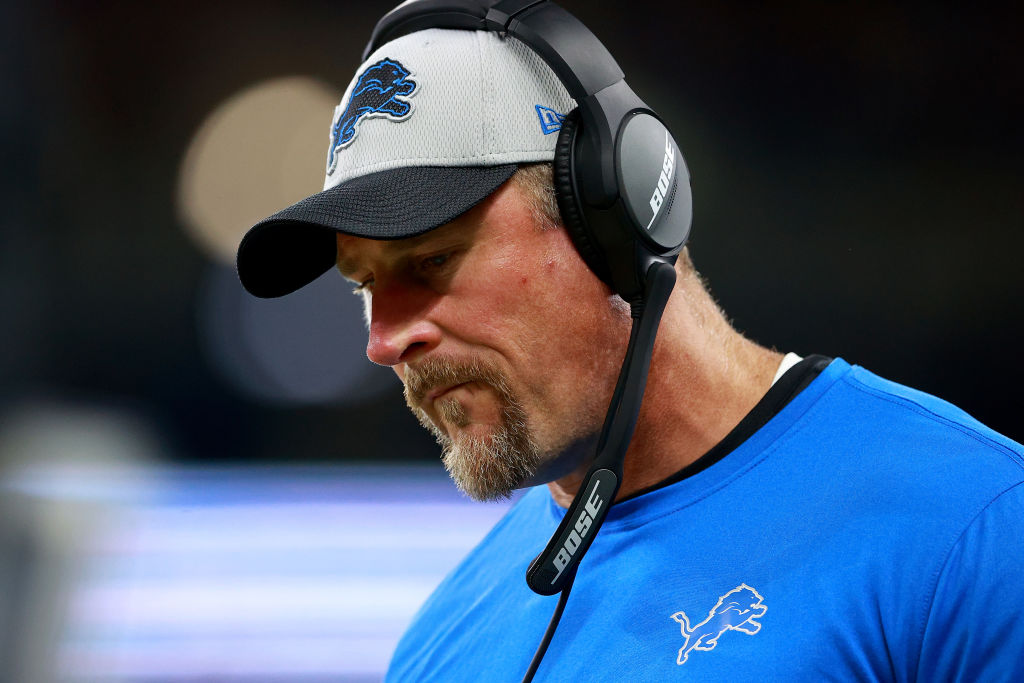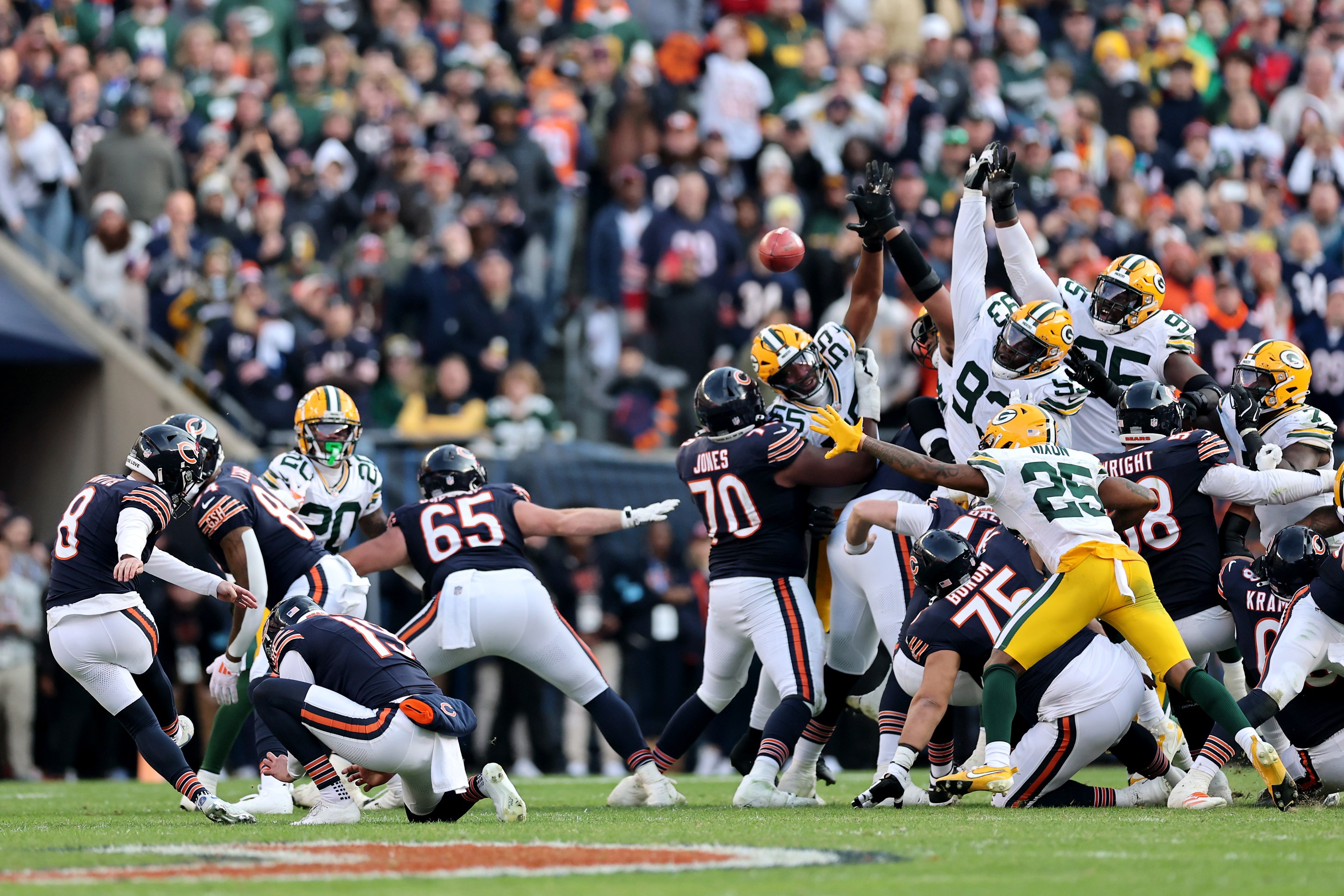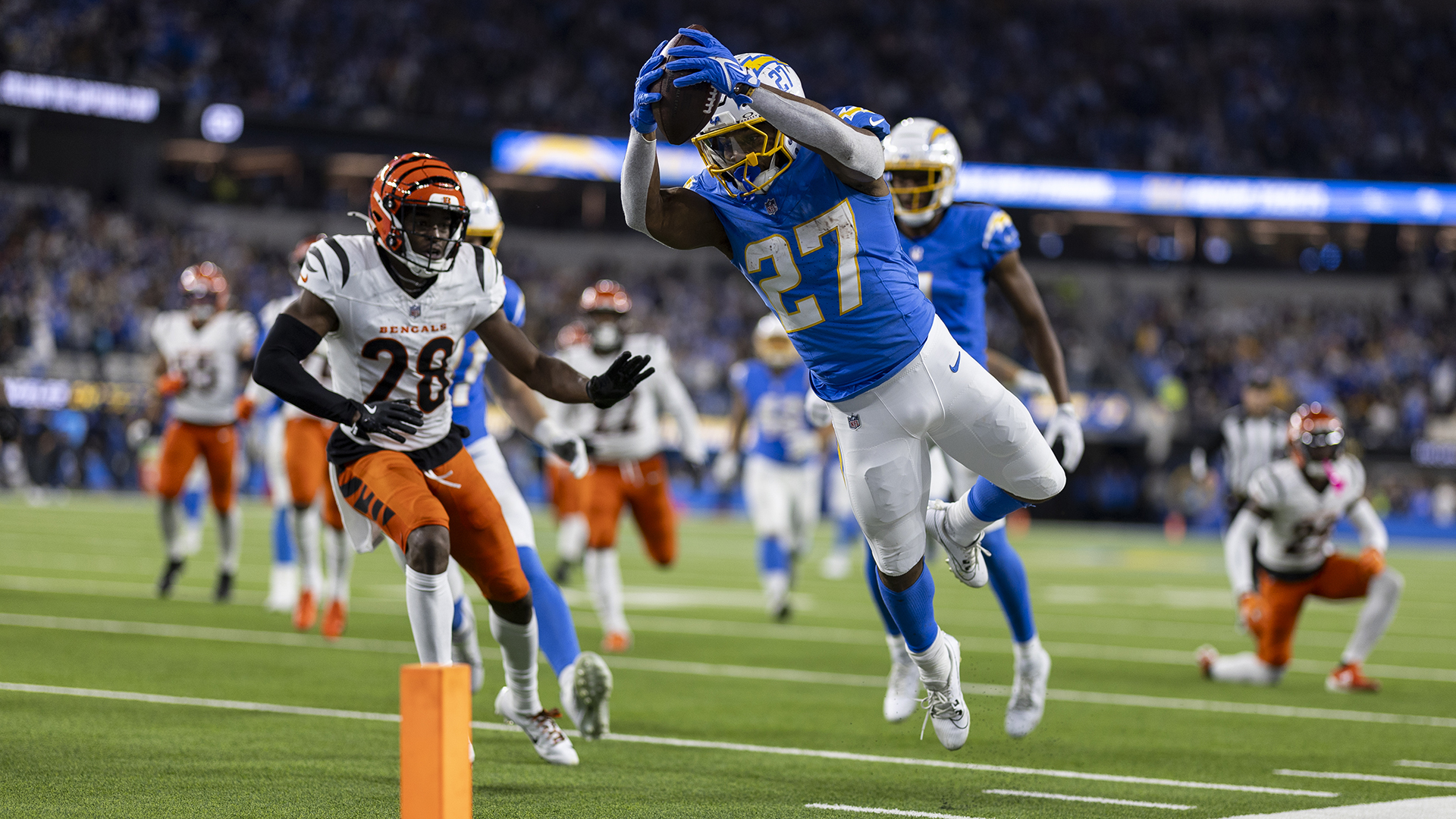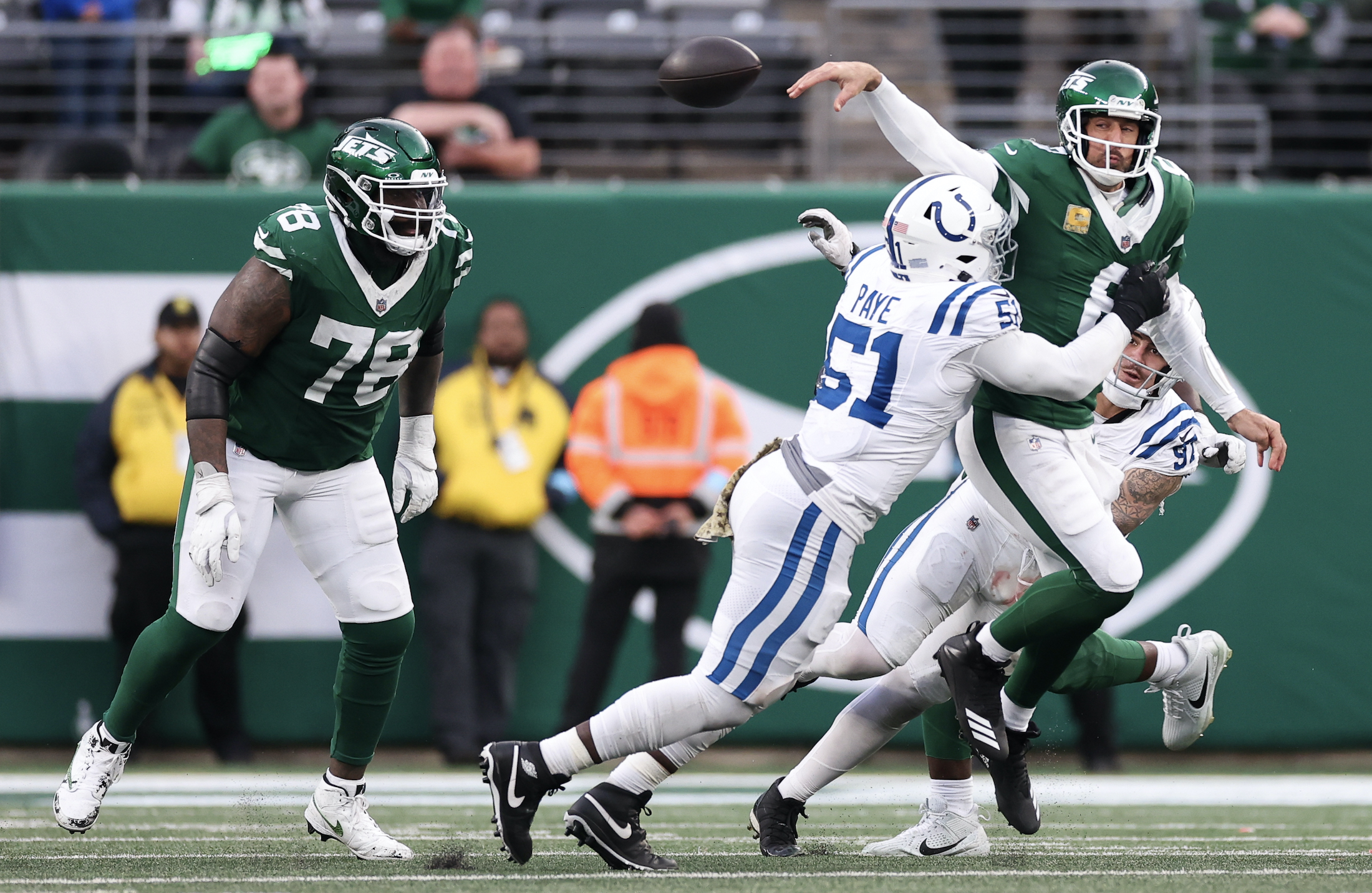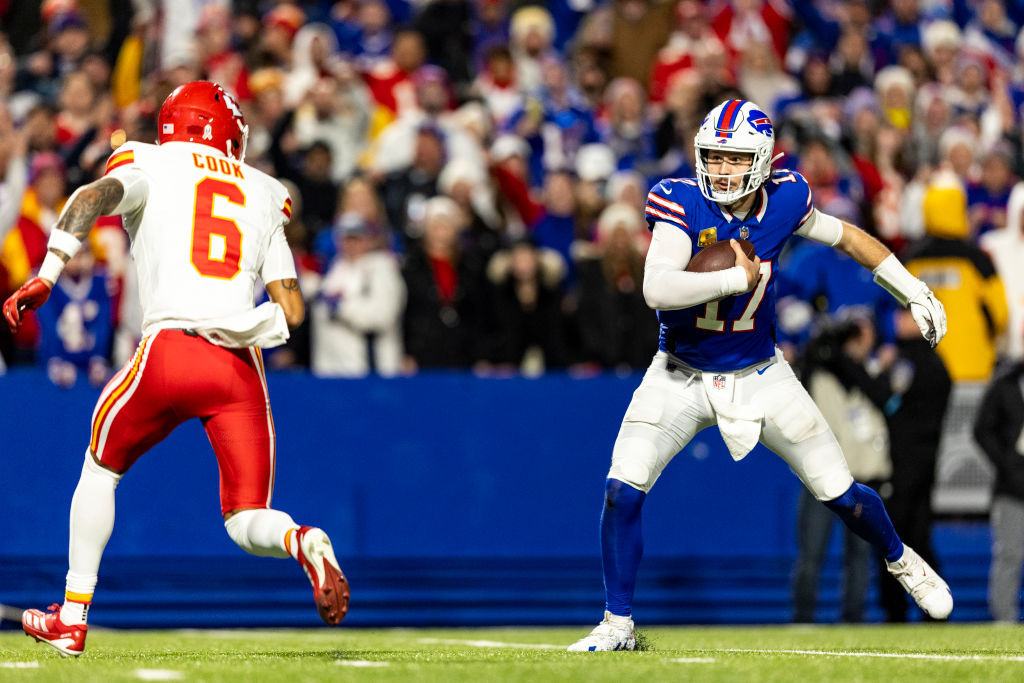I have not watched more than five minutes of a single Detroit Lions game this year. That's not exactly surprising, given that I am not from Michigan and there are very few reasons for a person like me to make time to see what an 0-7 football team is up to. And yet this has not stopped me from following the same routine every Monday morning: I wake up, take the dog for a walk, make coffee, and then settle in at my computer to watch Dan Campbell's postgame press conference from the day before.
At first I started doing this because I thought it would be funny. Campbell announced himself to the world with his famous introductory press conference, in which he promised that the Lions would enter the season ready to gnaw on their opponents' kneecaps. Here was a big, loud guy who talked to the press like a 1990s WCW wrestler cutting a promo, and he had somehow been put in charge of a professional football team. I promised myself I would keep a close eye on his press conferences throughout the season, because it seemed inevitable that they would be goofy and entertaining, whether the Lions won or lost.
The Lions have not won a game, and in fact have lost several in truly heartbreaking fashion. And yet despite all the losses and gut-punches piling up, I have found myself drawn to Campbell's press conferences not to experience schadenfreude, but because I find them ... affecting? I dare say ... inspiring?
The thing that I love about Campbell's pressers is that he is so obviously broken by every loss—he looks and talks like a guy in a Nordic noir TV series who was just told that his daughter's body was found in the woods—and yet he never turns sour or angry. Take, for example, yesterday's press conference, which followed a 28-19 loss to the Rams in which Campbell tried every trick available to him to earn his team an edge over their superior opponents.
The game came apart for Detroit late in the fourth quarter, when Jared Goff and the offense were driving towards a go-ahead touchdown, only to be undone by an interception in the Rams' end zone. Campbell was asked about that specific play by a reporter who mentioned the lack of space that Goff tried to fit the throw into, which teed up Campbell to take a subtle or not-so-subtle jab at his quarterback's decision-making, if he so desired.
Instead, he said this: "Well, you're trusting your player. You know, that's [T.J.] Hockenson, that's one of our best players. Now, it's something we worked on during the week, and shoot, man, we want him to rip it in there. Let's let our guy go make a play. Otherwise, if you don't, and Aaron Donald's coming, then it's a sack. I would blame that more on—blame that on me for design. Or us, or whatever. Don't blame that on him."
Perhaps I am just too accustomed to football coaches quietly seething and grumbling when they lose, and speaking in useless platitudes when they win, but I find Campbell incredibly endearing when he answers questions like that. Sure, plenty of other coaches have dusted off the old "the responsibility for this loss starts with me" maneuver after a tough loss, but I always get the sense that they never actually believe that. With Campbell, I don't think he gave that answer while quietly thinking to himself how much he'd love to bench Goff for being a moron. I think Campbell really wanted to stick up for his guy. He really does want him to rip it in there!
Later in the press conference, Campbell was asked about how he can continue to motivate the team going forward. "If this does not continue to sting and burn and taste like you-know-what, then you got a problem," he said. "You cannot allow yourself to go numb. You can't. Because I'm not. All it does is just piss me off even more. And it just motivates me to want to get out of this mess."
Again, the words themselves aren't much different than the usual motivational mumbo-jumbo that any football coach is equipped to spout on command, but it's Campbell's delivery that sets him apart. Nick Saban could say something like that, but you'd never for a second buy that he truly felt what he was saying, or trust that he believed the failure had anything to do with him and not his players' inability to live up to his expectations. Most of the time, when a coach talks in the wake of failure, no matter what they are saying, you are watching someone try to assign blame to anyone other than themselves. That's how coaches stay employed. Campbell seems different, though. He talks like a guy who is just genuinely trying to figure out how to keep his players motivated and get out of the mess they're in. That may ultimately not be the smartest thing for him to do in terms of job security, but it for now it's nice to see an NFL coach who isn't numb.
